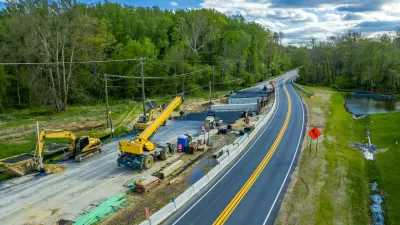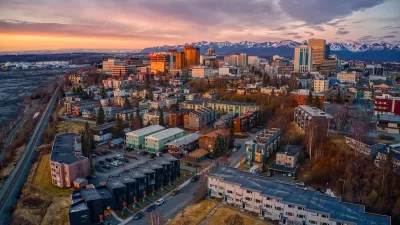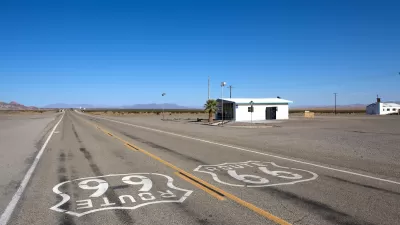Technology creates new challenges and opportunities, and this came home to me a couple of weeks ago when I was previewing a rough cut of Gridlock: Hell on Wheels, a video on traffic congestion released by Reason Foundation today. In the video, Comedian Drew Carey makes the following off-the-cuff comment on a morning drive-time radio show: “I would love to own a freeway in LA.”
Technology creates new challenges and opportunities, and this came home to me a couple of weeks ago when I was previewing a rough cut of Gridlock: Hell on Wheels, a video on traffic congestion released by Reason Foundation today. In the video, Comedian Drew Carey makes the following off-the-cuff comment on a morning drive-time radio show: "I would love to own a freeway in LA."
Why not? Gridlock earns its name on LA's freeway system where traffic counts rank among the densest in the nation. If there is anywhere someone could make money owning and managing a road system, LA is the place.
But this is a revolutionary paradigm, only made practical by rapid advances in technology and new applications of roadway management. Over the last 15 years, technology has advanced to the point where roads, particularly limited access highways, no longer need to be "public goods"-built and paid for by the public sector with "free" access to all users. The 91 Express Lanes in Southern California have helped show this principle along with dozens of HOT lane projects across the US.
Using variable rate pricing-increasing prices when roads are congested and lowing prices when they are underutilized-roads can be priced to cover their costs and, in the process, achieve more efficient and effective road services. The key will be to price roads so that they provide a benefit people will pay for-speed and reliability. Priced roads also have the benefit of dedicating excess capacity to mass transit, creating "virtual" exclusive busways. Transit and cars win.
Road pricing roads carries opportunities and challenges for planners. In addition to making transit more effective, travelers would have stronger incentives to look for alternatives to driving. Pedestrian friendly street designs, mixed use, telecommuting and even live-work arrangements would become relatively more attractive. Of course, some people might have an incentive to live even further out, but at least these choices would more closely reflect the true costs of providing the transportation services they use.
Of course, this means highways would no longer be free. So, there would not be a Drew Carey "freeway". There could be a Drew Carey highway, and perhaps that's progress.

Maui's Vacation Rental Debate Turns Ugly
Verbal attacks, misinformation campaigns and fistfights plague a high-stakes debate to convert thousands of vacation rentals into long-term housing.

Planetizen Federal Action Tracker
A weekly monitor of how Trump’s orders and actions are impacting planners and planning in America.

In Urban Planning, AI Prompting Could be the New Design Thinking
Creativity has long been key to great urban design. What if we see AI as our new creative partner?

Massachusetts Budget Helps Close MBTA Budget Gap
The budget signed by Gov. Maura Healey includes $470 million in MBTA funding for the next fiscal year.

Milwaukee Launches Vision Zero Plan
Seven years after the city signed its Complete Streets Policy, the city is doubling down on its efforts to eliminate traffic deaths.

Portland Raises Parking Fees to Pay for Street Maintenance
The city is struggling to bridge a massive budget gap at the Bureau of Transportation, which largely depleted its reserves during the Civd-19 pandemic.
Urban Design for Planners 1: Software Tools
This six-course series explores essential urban design concepts using open source software and equips planners with the tools they need to participate fully in the urban design process.
Planning for Universal Design
Learn the tools for implementing Universal Design in planning regulations.
Gallatin County Department of Planning & Community Development
Heyer Gruel & Associates PA
JM Goldson LLC
City of Camden Redevelopment Agency
City of Astoria
Transportation Research & Education Center (TREC) at Portland State University
Jefferson Parish Government
Camden Redevelopment Agency
City of Claremont






























